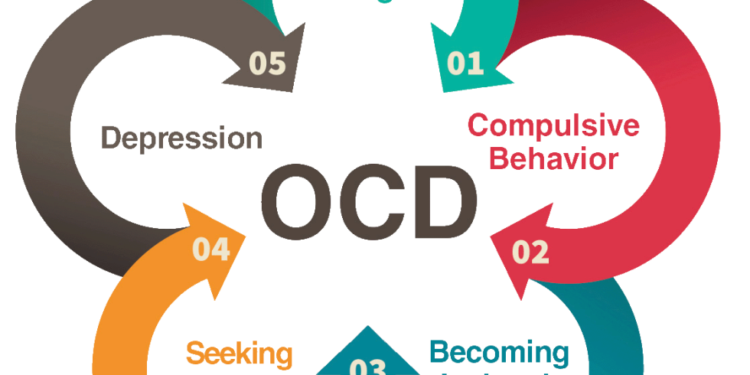Uganda is drowning in silent suffering. Among the many afflictions that torment its people, one remains invisible yet relentless—Obsessive-Compulsive Disorder (OCD). It is a ruthless dictator of the mind, imprisoning its victims in a never-ending cycle of fear, anxiety, and repetitive behaviors. While the world acknowledges it as a serious mental health condition, Uganda’s ignorance and indifference have left its sufferers trapped in a private hell with no escape.
OCD is not just about excessive cleanliness or an obsession with order—it is a relentless storm of intrusive thoughts that terrorize the mind, forcing individuals into irrational rituals in a desperate attempt to find relief. Picture a student in Kampala, unable to sit for an exam because he fears that if he doesn’t tap his desk in a specific pattern, his mother will die. Imagine a mother in Tororo, spending hours washing her hands until they bleed because she is convinced she carries an invisible disease that could kill her child. These are not exaggerated tales. They are the grim reality of those tormented by OCD in Uganda, where mental health is still buried under layers of superstition, stigma, and ignorance.
In a society that equates mental illness with madness or spiritual weakness, sufferers of OCD face double punishment. Not only do they endure the relentless torture of their own minds, but they are also dismissed, mocked, or accused of being possessed by demons. Families, instead of seeking medical intervention, drag their loved ones to churches, hoping for an exorcism to cast out what they believe to be an evil spirit. And when the prayers don’t work? The suffering continues, unchecked, untreated, and ignored.
Uganda’s healthcare system offers no sanctuary for OCD sufferers. The country has an appalling shortage of mental health professionals, and even fewer who understand the complexities of OCD. Psychiatric help is expensive, therapy is rare, and medication is either unavailable or unaffordable. This means that thousands of Ugandans, including children, are left to battle their intrusive thoughts alone, locked in an endless war inside their own heads. And for those who do seek help? The lack of awareness among medical practitioners often leads to misdiagnosis, with OCD being mistaken for general anxiety, depression, or even witchcraft-related paranoia.
Meanwhile, Uganda’s obsession with physical health continues to overshadow mental health entirely. Billions are poured into fighting malaria, HIV, and malnutrition, yet mental illness—just as life-threatening—remains ignored. People with OCD are dying in silence, not because their condition is untreatable, but because Uganda refuses to acknowledge their suffering. How many more minds must be lost to this unseen agony before the nation wakes up?







Discussion about this post